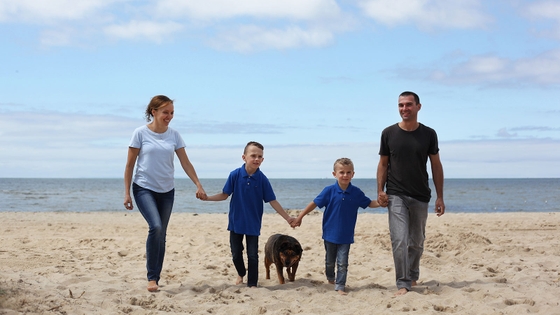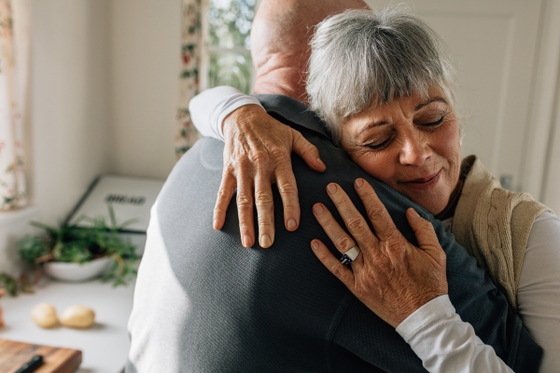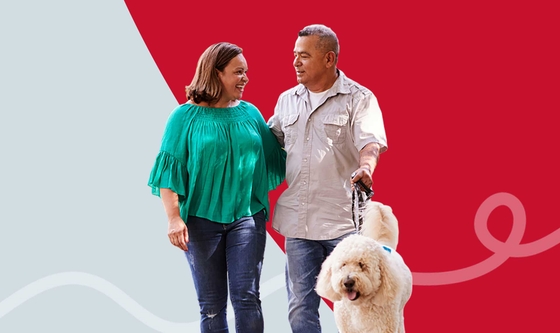
Caring for someone after a heart attack
Key takeaways
- A heart attack is a sudden, life-changing event. Not only does it affect the person, but also their family and friends.
- If you’re caring for someone who is recovering from a heart attack, it’s normal to feel overwhelmed, worried and confused at times.
- Know that support is available for both you and the person you are caring for.
Understand the steps to heart attack recovery
After a heart attack, your loved one will have been given a lot of information by their healthcare team. This can include information about:
- what happened to them
- the tests and treatments they had
- new medicines they’ve been prescribed
- how to care for their wound (if they have one)
- heart-healthy changes they need to make, like eating well and being physically active
- what to do if they experience the warning signs of a heart attack
- follow-up appointments.
You can support your loved one by helping them to understand and remember all this new information. Before leaving hospital, ask the healthcare team any questions you might have about your loved one’s recovery. Know where to get more information or support if you need it once you get home.
Attend appointments when you can
Attending follow-up appointments with your loved one can be a great support. Having a second pair of ears to listen to the healthcare team’s advice can be helpful. Take a notebook with you so you can jot down important information.
Before an appointment, have a chat with your loved one and together write down any questions you might have for the healthcare team. There is no such thing as too many questions!
Don’t worry if you can’t attend all appointments with your loved one. Even helping them with practical things can be great way to support them. For example, arranging transport to and from their appointment, and making sure appointment times are noted down somewhere so you’ll both remember.
Give and receive emotional support
Recovering from a heart attack can be a very emotional experience for both the person and the people around them. Talk to your loved one about how they’re feeling and how they’re coping.
Some people find it hard to talk about their condition. If they’re uncomfortable talking with you, you could encourage them to:
- see their GP
- find a support group (like the Heart Foundation’s MyHeart MyLife online support group.
- get in touch with Beyond Blue.
Be aware of your emotions too. It’s normal to have feelings of anger, frustration and sadness along with positive feelings, such as love, pride and gratitude.
As a carer, you can also join the MyHeart MyLife online support group, where you can connect with others who are also caring for someone with a heart condition.
Learn more about managing emotions after a heart attack.
Make heart-healthy changes together
After their heart attack, your loved one will have been told about heart-healthy changes they can make. These are important to reduce their risk of another heart attack and include things like:
- following a heart-healthy eating pattern
- being more physically active
- cutting down on alcohol
- quitting smoking and/or vaping
- maintaining a healthy weight
- finding healthy ways to manage stress.
Why not support your loved one by making some heart-healthy changes too? You’ll get the heart health benefits as well! Try things like:
- cooking a heart-healthy recipe together
- doing a physical activity together, like going for a walk, swim or bike ride. You could even join a Heart Foundation Walking group together
- if you both drink alcohol, agree to introduce more alcohol-free days each week.
Look after yourself
Caring for someone can be challenging physically and emotionally. To avoid burn out, you need to look after yourself and accept help when you can.
Most people have other responsibilities at home, at work or both. Getting the balance right can be hard. It’s easy for your caring role to take over and for other things to get neglected. Making plans and setting goals can be a good way to keep things under control.
Part of looking after yourself is taking breaks. It’s good for your own wellbeing and will help you give better care. Try and find someone to share the caring with if you can.
Keep doing the activities you enjoy and make your health a priority. Focus on ways to reduce your stress. Mindfulness, relaxation and breathing exercises are very helpful. If you start to feel anxious or depressed, see your GP for help.
Know when to seek support
Caring for someone can be both rewarding and challenging. Needing help doesn’t mean you’re not coping. In fact, a bit of extra support can make a big difference. You might like to think about:
- reaching out to family and/or friends to see if they can give you a break from caring when you need it
- letting your employer know you are caring for a loved one
- exploring the Carer Gateway website for supports available to you
- checking that the person you’re caring for is getting all the financial support they’re entitled to. Visit the Services Australia website for more information.
Join the MyHeart MyLife support program
MyHeart MyLife is our free support program for people living with heart disease and their carers.
By joining, you’ll get access to:
- heart health information, expert guidance and practical tips via online articles and short videos,
- supportive text messages and emails to motivate and inspire,
- access to the MyHeart MyLife online support community, where you can connect with other carers.
We’re here for you as you support your loved one to live well with heart disease.
You might also be interested in...

Long-term recovery after a heart attack
Information to help you adjust to what could be the 'new normal'

Support after a heart attack
Many different thoughts may go through your head after a heart attack and you may be presented with complicated medical info. Know where to get support.

MyHeart MyLife
Your next step towards recovery and living well with heart disease
Last updated28 July 2025
Last reviewed19 February 2025
